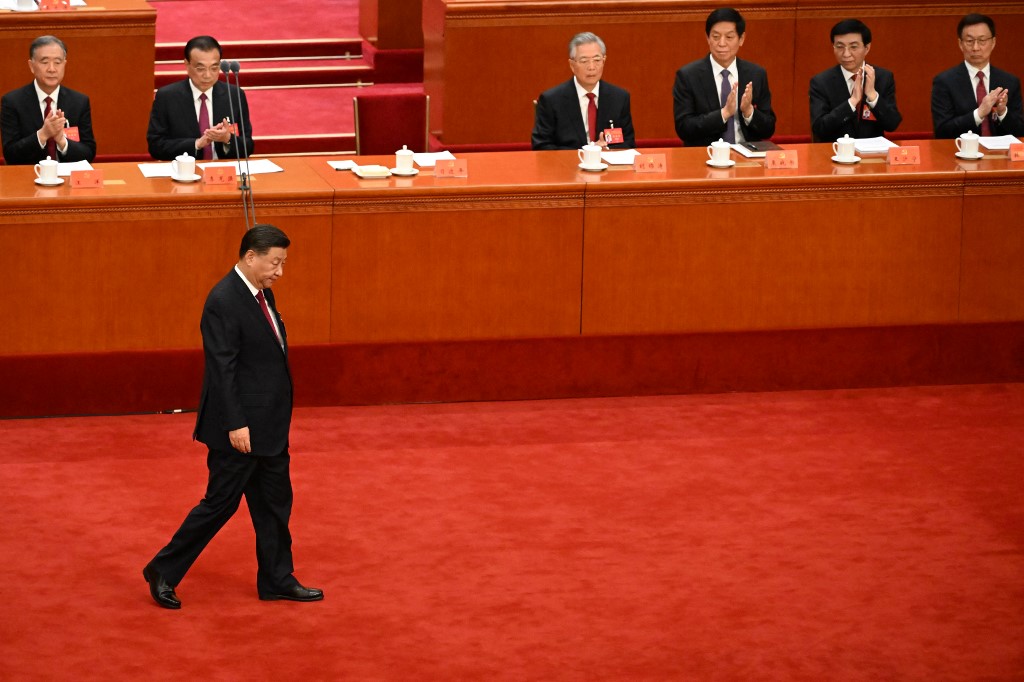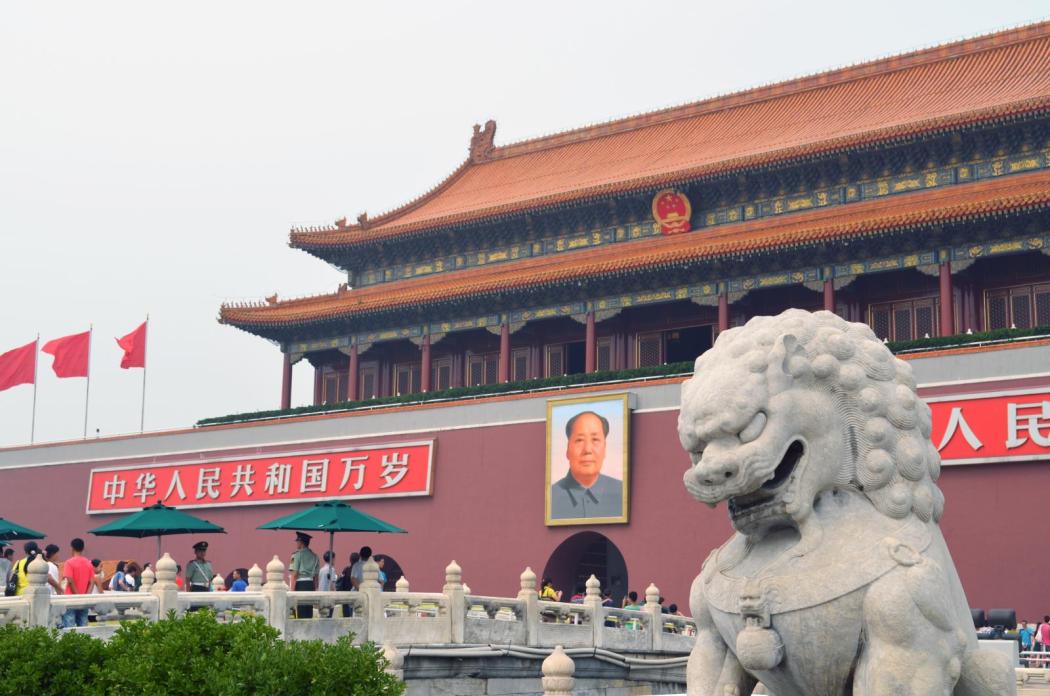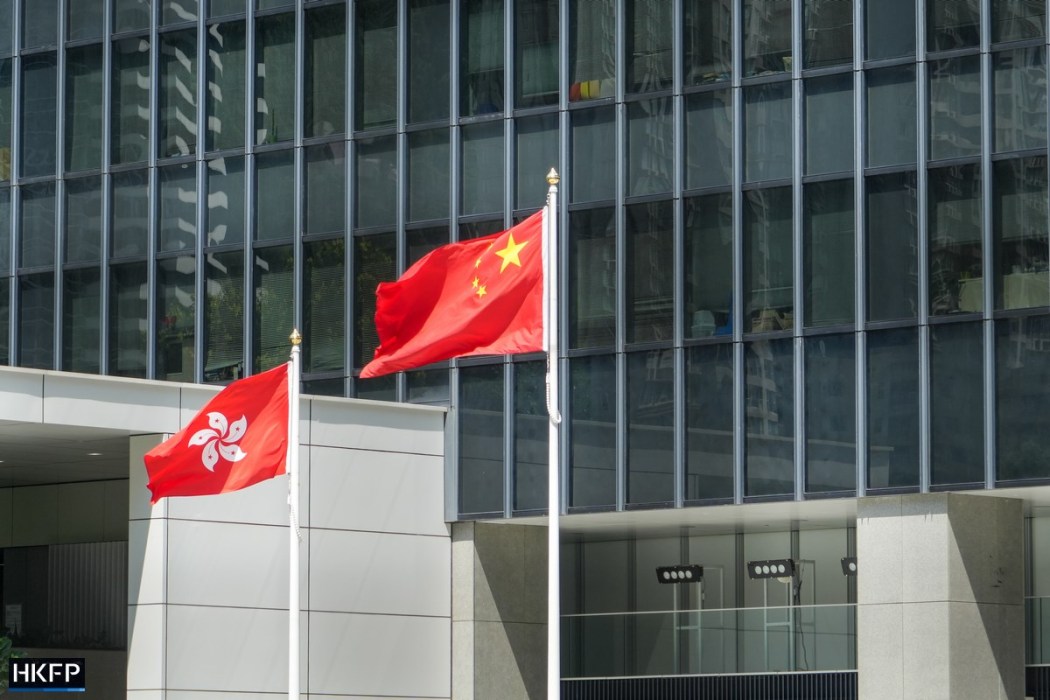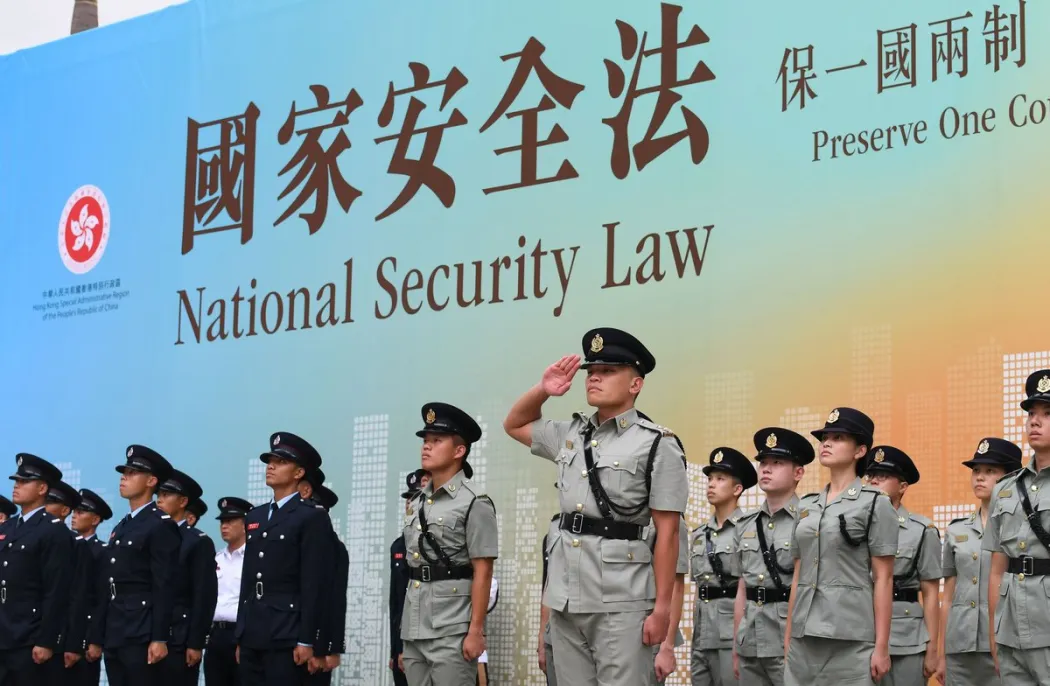The Communist Party’s 20th National Congress, China’s most consequential political event in a decade, began on October 16 in the Great Hall of the People in Beijing. This twice-a- decade event will inaugurate a new Central Committee, the party’s highest policy-making body composed of 300 people. As President and General Secretary Xi assembles a new team for his third term, senior positions will see considerable changes.

The report presented by General Secretary Xi illustrates the nation’s and party’s achievements over the previous five years, as well as a trajectory for the country and its people over the next five years and beyond. His speech comes at a time when China’s economy is dealing with a range of challenges, including tensions with the West, the Ukrainian conflict and the Covid-19 pandemic.
As the world watched the opening of the Congress, Xi set out goals and objectives that will contribute to profound positive changes over the next decade. His speech was internationally focused, content-rich, far-sighted, and forward-thinking, and will put the country on a new path of future development and the realisation of Chinese aspirations.
It denotes that all participants and constituents within the nation, from top to bottom, will move forward unwaveringly and courageously, fully integrating and cooperating with the country’s pace and plans. It will undoubtedly include the two Special Administrative Regions, Hong Kong and Macau, in the country’s overall development, endeavouring to enhance the great rejuvenation of the Chinese nation and contributing to a brilliant future.
In his ingenious speech Xi went into great detail about the country’s politics, military strategy, diplomacy, economy, efforts to alleviate poverty and promote common prosperity, anti-epidemic measures, science and technology, education, culture, talent development, youth welfare and livelihood, and living sustainability.

I consider the most inspiring topic to be the development of the whole-process democracy, ensuring that the people have authority over their own country. Xi emphasised that all national power belongs to the people, and that the country must unswervingly pursue the path of socialist political development with Chinese characteristics – broadening the possibilities of orderly political participation for the people, comprehensively establishing the notion of public consultation, and advancing the extensive and deeply ingrained institutionalisation of consultative deliberation.
Xi’s report recognises the importance of integrating Marxist tenets with China’s specific circumstances and traditional aristocratic culture – generating a set of Marxist socialist principles that are appropriate for the nation’s culture, and establishing a new era of Chinese socialism.
Xi stressed the significance of Hong Kong’s advancement as an integral part of national development. “One Country, Two systems” is an excellent representation of Chinese socialism; it is the foundation and finest arrangement for ensuring long-term prosperity and stability and must be adhered to. Its success is in the best interests of the two Special Administrative Regions. It is also in the best interests of the country to have a policy that is so influential that it transcends international boundaries.
Our motherland will implement the principle of One Country, Two Systems zealously and unapologetically, with Hong Kong people administering Hong Kong autonomously while complying with the rule of law. This is critical for preserving the Central Government’s broad jurisdiction while also granting Special Administrative Regions significant autonomy.

The “One Country, Two Systems” premise was founded on the highest ideals of national sovereignty, security, and development interests. Due to their high levels of autonomy and established capitalist systems, Hong Kong and Macau have both prospered. Hong Kong will undoubtedly maintain a high level of autonomy, and is obligated to safeguard the city’s national sovereignty, security, and development aspirations. A policy that fosters long-term growth and sustainable benefits for both China and Hong Kong should never, in my opinion, be abandoned. As long as we are willing to acknowledge and accept the reality of One Country, I am certain that Two Systems offers endless prospects and boundless opportunities.
Our motherland will assist Hong Kong’s productivity expansion, enhance people’s livelihoods, address longstanding issues with social and economic development, encourage the city’s long-term prosperity and stability, help Hong Kong’s integration into the nation’s advancement, and contribute to the realisation of the Chinese nation’s great rejuvenation. The One Country, Two Systems policy has repeatedly demonstrated that it is the cornerstone and the foundation of Hong Kong and has given us the essential components we require to overcome adversity under the direction of the Communist Party of China.

The political unrest in 2019, which Western critics anticipated would lead to the demise of One Country, Two Systems and a full-fledged Chinese intervention, was Hong Kong’s toughest challenge to date. It has successfully navigated through such political turmoil, with the enactment of the National Security Law and the reform of the electoral system – transitioning from chaos to governance and ushering in a new era of prosperity. The Hong Kong SAR government should take advantage of the opportunities and initiatives highlighted by Xi to enhance the prosperity, contentment and safety of its people.
The strategy to revitalise and modernise the nation through science and education was demonstrated in Xi’s report. In the interest of populist satisfaction, our government must learn from the motherland in areas such as the development of an efficient economy, the advancement of social innovation, and the enhancement of the education system. Through elite talent development and recruitment, we should accelerate the implementation of the innovation-driven development strategy, cultivating and attracting the world’s most innovative talent and leveraging it to promote advanced scientific and technological independence.
With the national development plan as guidance, Hong Kong can achieve previously unattainable heights. The city will capitalise on its distinct characteristics under Xi’s direction, with the encouragement of our motherland and the ability to connect with the global market.
Support HKFP | Policies & Ethics | Error/typo? | Contact Us | Newsletter | Transparency & Annual Report | Apps
Help safeguard press freedom & keep HKFP free for all readers by supporting our team
| HKFP is an impartial platform & does not necessarily share the views of opinion writers or advertisers. HKFP presents a diversity of views & regularly invites figures across the political spectrum to write for us. Press freedom is guaranteed under the Basic Law, security law, Bill of Rights and Chinese constitution. Opinion pieces aim to point out errors or defects in the government, law or policies, or aim to suggest ideas or alterations via legal means without an intention of hatred, discontent or hostility against the authorities or other communities. |

More HKFP OPINION:
HKFP has an impartial stance, transparent funding, and balanced coverage guided by an Ethics Code and Corrections Policy.
Support press freedom & help us surpass 1,000 monthly Patrons: 100% independent, governed by an ethics code & not-for-profit.










